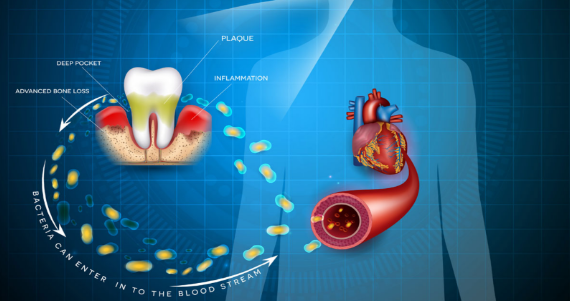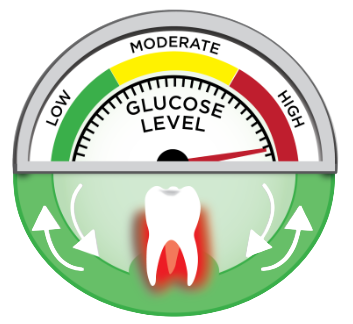Did you know that your Dental Health and Overall Wellness has related? It’s true! From cavities to cancer, your oral health can serve as a window into your body’s well-being. While regular dental check-ups and cleanings are crucial for maintaining healthy teeth, they can also provide early warning signs of other health issues.
For example, bleeding gums can indicate gum disease, which has been linked to heart disease and diabetes. Discoloration or erosion of the enamel may point to acid reflux or other digestive problems. Even cancer can sometimes be detected through changes in the mouth. This is why it’s important to pay attention to any changes in your oral health, and to maintain good dental hygiene habits. So next time you brush your teeth, take a moment to consider what they might be telling you about your overall health.
How Cavities and Gum disease can indicate other health issues
Cavities and gum disease are two of the most common oral health issues, and they can also be warning signs of other health concerns. In fact, people with gum disease are twice as likely to develop heart disease as those with healthy gums. This is because the bacteria that cause gum disease can enter the bloodstream and contribute to the formation of plaque in the arteries.
Cavities, on the other hand, can be a sign of poor nutrition or a weakened immune system. If you’re not getting enough vitamins and minerals in your diet, your teeth may be more susceptible to decay. Similarly, if your immune system is compromised, you may be more prone to cavities and other infections.
Maintaining good dental hygiene is key to preventing cavities and gum disease, as well as the potential health issues they can indicate. Brush your teeth at least twice a day, floss daily, and visit your dentist regularly for check-ups and cleanings.
The connection between Oral Health and Heart Disease
As mentioned earlier, gum disease has been linked to an increased risk of heart disease. This is because the bacteria that cause gum disease can enter the bloodstream and contribute to the formation of plaque in the arteries. In addition, inflammation caused by gum disease can also contribute to the development of heart disease.
Research has shown that people with gum disease are at higher risk for heart attacks and strokes than those with healthy gums. In fact, one study found that people with gum disease were nearly twice as likely to have a heart attack than those without gum disease.
To reduce your risk of both gum disease and heart disease, be sure to maintain good oral hygiene habits. Brush your teeth at least twice a day, floss daily, and visit your dentist regularly for check-ups and cleanings. If you have gum disease, your dentist may recommend additional treatments to help manage it.

Oral health and Diabetes
Diabetes is a chronic condition that affects the way your body processes sugar. People with diabetes are at higher risk for a number of health issues, including gum disease. In fact, gum disease is often considered a complication of diabetes.
The relationship between diabetes and gum disease is complex. High blood sugar levels can make it harder for your body to fight off infections, including those that cause gum disease. In addition, gum disease can make it harder for people with diabetes to control their blood sugar levels.
If you have diabetes, it’s important to take extra care of your oral health. Brush your teeth at least twice a day, floss daily, and visit your dentist regularly for check-ups and cleanings. Be sure to tell your dentist that you have diabetes, as they may recommend additional treatments or precautions.

The link between oral health and cancer
Cancer is a complex disease that can affect many parts of the body, including the mouth. While oral cancer is relatively rare, it’s important to be aware of the potential warning signs. These can include:
– Red or white patches in the mouth
– Sores that don’t heal
– A lump or thickening in the cheek
– Difficulty swallowing or speaking
– Pain or numbness in the mouth or tongue
If you notice any of these symptoms, be sure to see your dentist or doctor right away. Early detection is key to successful treatment.
The importance of regular dental check-ups
Regular dental check-ups are important for maintaining good oral health and identifying potential health issues early on. During a dental exam, your dentist will check your teeth and gums for signs of cavities, gum disease, and other oral health issues. They may also take X-rays to look for potential problems below the surface.
In addition to checking your oral health, your dentist may also screen for other health issues. For example, they may check for signs of sleep apnea, which can cause snoring and other breathing problems. They may also check for signs of oral cancer or other types of cancer.
If your dentist identifies any potential health issues, they may recommend additional tests or treatments. For example, if you have gum disease, they may recommend a deep cleaning or other treatments to help manage it. They may also refer you to a specialist if necessary.
Conclusion
Your oral health is an important part of your overall health and well-being. By maintaining good dental hygiene habits and visiting your dentist regularly, you can prevent cavities, gum disease, and other potential health issues. Schedule an appointment at All in One Dental to receive expert care and guidance in maintaining a healthy smile and overall well-being. Don’t overlook the importance of your oral health – it’s a gateway to a healthier you.
